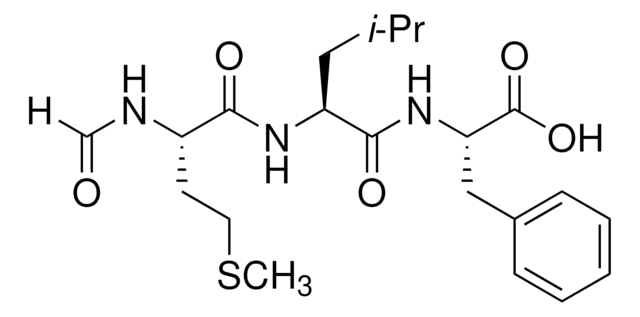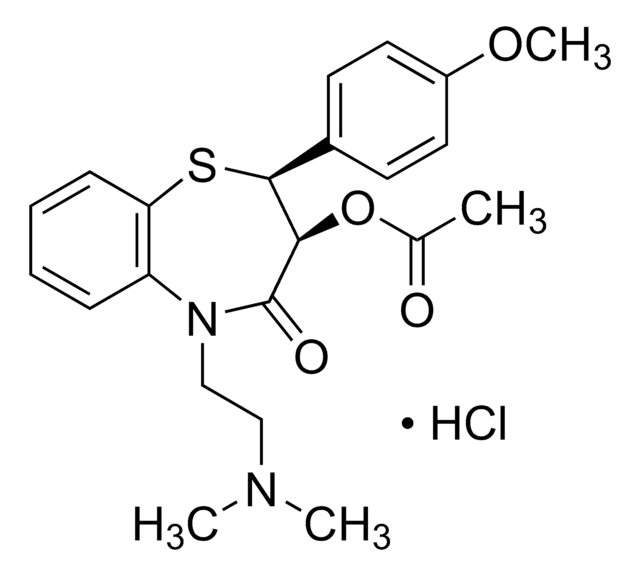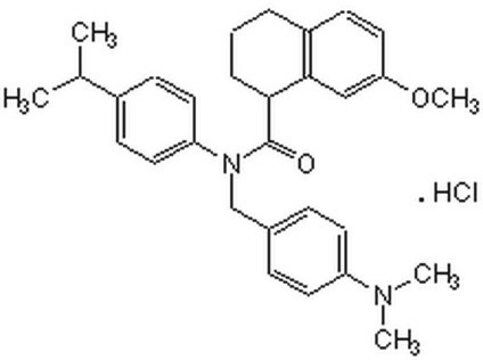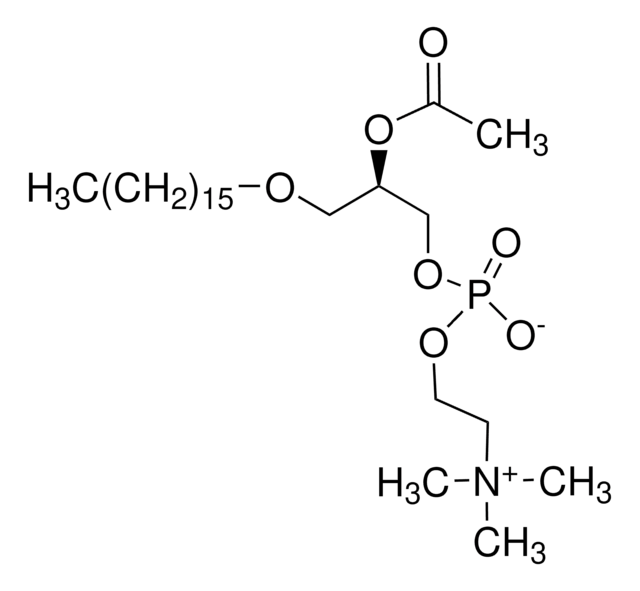F3506
N-Formyl-Met-Leu-Phe
≥97% (HPLC)
Synonym(s):
Chemotactic peptide, N-Formyl-L-methionyl-L-leucyl-L-phenylalanine, fMLF, fMLP (misnomer but widely used)
About This Item
Recommended Products
Quality Level
Assay
≥97% (HPLC)
form
powder
mol wt
437.55
storage condition
(Keep container tightly closed in a dry and well-ventilated place)
technique(s)
activity assay: suitable
solubility
acetic acid: 20 mg/mL, clear, colorless
storage temp.
−20°C
SMILES string
CSCC[C@H](NC=O)C(=O)N[C@@H](CC(C)C)C(=O)N[C@@H](Cc1ccccc1)C(O)=O
InChI
1S/C21H31N3O5S/c1-14(2)11-17(23-19(26)16(22-13-25)9-10-30-3)20(27)24-18(21(28)29)12-15-7-5-4-6-8-15/h4-8,13-14,16-18H,9-12H2,1-3H3,(H,22,25)(H,23,26)(H,24,27)(H,28,29)/t16-,17-,18-/m0/s1
InChI key
PRQROPMIIGLWRP-BZSNNMDCSA-N
Gene Information
human ... FPR1(2357)
Looking for similar products? Visit Product Comparison Guide
Amino Acid Sequence
General description
Research area: Cell signaling
Application
- creating gradients in Zigmond chamber chemotaxis assay performed on neutrophils
- neutrophil chemotaxis assay
- determination of the involvement of MAPK-activating protein kinase-2 (MAPKAPK-2) and/or p38, in the signaling pathway of human polymorphonuclear leukocytes (PMNs) stimulated by N-Formyl-Met-Leu-Phe.
Biochem/physiol Actions
antibody
related product
Storage Class Code
11 - Combustible Solids
WGK
WGK 3
Flash Point(F)
Not applicable
Flash Point(C)
Not applicable
Personal Protective Equipment
Certificates of Analysis (COA)
Search for Certificates of Analysis (COA) by entering the products Lot/Batch Number. Lot and Batch Numbers can be found on a product’s label following the words ‘Lot’ or ‘Batch’.
Already Own This Product?
Find documentation for the products that you have recently purchased in the Document Library.
Customers Also Viewed
Our team of scientists has experience in all areas of research including Life Science, Material Science, Chemical Synthesis, Chromatography, Analytical and many others.
Contact Technical Service










